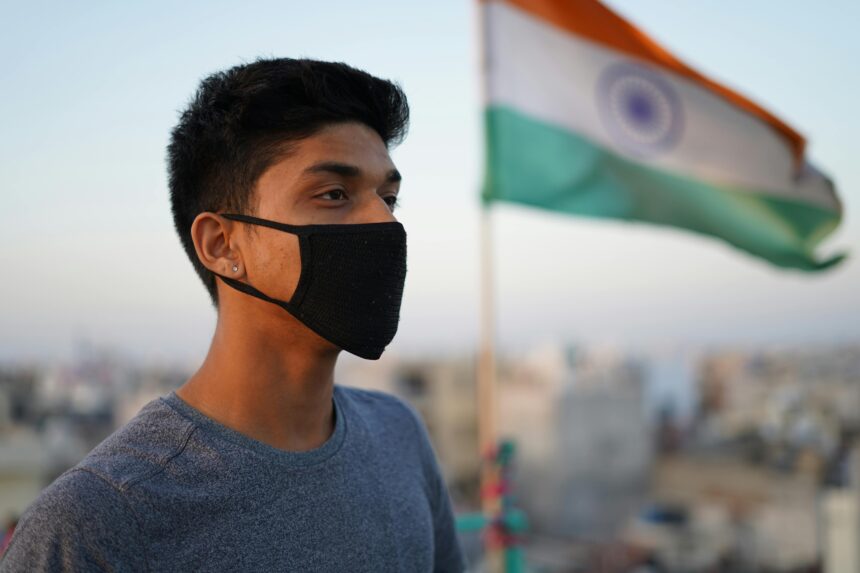A Generation at the Crossroads
Uttar Pradesh (UP), a state deeply rooted in tradition, is witnessing a generational shift as its youth navigate the tension between progressive ideals and longstanding cultural values. With over 34% of UP’s population under the age of 25 (Census 2011), the state’s young citizens hold the key to its socio-political and economic future. Are they breaking away from traditional norms to embrace modernity, or are they redefining progress within the framework of their cultural heritage?
The Forces Shaping Youth Perspectives in UP
1. Education and Awareness
- Expanding Opportunities:
- Programs like the Samagra Shiksha Abhiyan and digital learning platforms are creating avenues for youth to access quality education.
- Institutions like Banaras Hindu University (BHU) and Aligarh Muslim University (AMU) expose students to diverse ideas and philosophies.
- Challenges:
- In rural areas, limited access to higher education and entrenched cultural norms often restrict exposure to progressive ideas.
2. Technology and Globalization
- Digital Exposure:
- With the rapid proliferation of smartphones and social media, UP’s youth are more connected to global trends and progressive discourses than ever before.
- Influence:
- Platforms like Instagram and Twitter foster conversations about feminism, climate change, and social justice, influencing attitudes toward traditional roles and practices.
3. Urbanization
- Emerging Urban Centers:
- Cities like Lucknow, Noida, and Kanpur offer opportunities for employment and exposure to cosmopolitan lifestyles, driving shifts in attitudes.
- Cultural Clashes:
- Urban youth often adopt progressive ideals, while their rural counterparts may adhere to traditional values, reflecting a stark urban-rural divide.
Progressive Ideals Among UP’s Youth
1. Gender Equality
- Changing Roles:
- Women in urban UP are increasingly pursuing higher education and careers, challenging patriarchal norms.
- Feminist movements and social media campaigns are inspiring young women and men to advocate for gender equity.
2. Political Engagement
- Increased Participation:
- Youth engagement in movements like anti-CAA protests and climate strikes indicates a growing awareness of social and political issues.
- Critical Thinking:
- A rising number of young voters are questioning traditional caste and religion-based politics, demanding accountability and governance.
3. Entrepreneurship and Innovation
- Startups:
- Cities like Noida have become hubs for tech-driven startups, with young entrepreneurs challenging traditional career paths.
- Skill Development:
- Initiatives like the Skill India Mission equip youth with tools to compete in a globalized economy.
Tradition as a Guiding Force
1. Family and Community Values
- Respect for Elders:
- Many youth in UP continue to prioritize family obligations, viewing progress as a collective rather than individual achievement.
- Cultural Practices:
- Festivals like Holi and Diwali, along with rituals like arranged marriages, remain central to many young people’s lives.
2. Spiritual and Religious Identity
- Faith as Anchor:
- For many, religion provides moral guidance, with regular participation in rituals and pilgrimages reflecting a deep connection to spiritual traditions.
- Balancing Faith and Progress:
- Some youth reinterpret religious practices to align with modern ideals, blending spirituality with innovation.
3. Rural Stability
- Agrarian Roots:
- Young people in rural areas often adhere to traditional roles in agriculture and family businesses, reflecting a slower pace of socio-economic change.
Challenges in Balancing Tradition and Progress
1. Generational Divide
- Clash of Values:
- Older generations often view progressive ideals as threats to cultural norms, creating friction within families.
- Impact on Youth:
- Fear of ostracization or family conflict prevents many young people from openly embracing modern ideals.
2. Gender-Based Constraints
- Resistance to Change:
- While urban women experience greater freedom, rural women face cultural and systemic barriers to education and employment.
3. Economic Inequality
- Access to Opportunities:
- Wealthier, urban youth have access to resources that foster progress, while rural and economically disadvantaged youth often lack similar opportunities.
Striking a Balance: Tradition and Progress in Harmony
1. Education Reform
- Curriculum Modernization:
- Introduce life skills, critical thinking, and gender sensitivity into school curriculums to prepare youth for modern challenges.
2. Community-Led Initiatives
- Blending Old and New:
- Support grassroots programs that integrate traditional knowledge with modern practices, such as sustainable farming techniques.
3. Leveraging Technology
- Digital Inclusion:
- Expand internet access and digital literacy programs to rural areas, bridging the urban-rural divide.
4. Role Models and Mentorship
- Highlighting Success Stories:
- Celebrate young leaders who balance tradition with innovation, inspiring others to follow suit.
Conclusion: A Generation in Transition
The youth of Uttar Pradesh are redefining what it means to balance tradition and progress. While many embrace modern ideals of gender equality, entrepreneurship, and political activism, others remain rooted in cultural and familial values that prioritize community and spirituality.
This duality is not a conflict but a strength. By fostering environments that encourage dialogue and inclusivity, UP can empower its youth to honor their heritage while driving innovation and change, ensuring a future where tradition and progress thrive side by side.


Leave a Reply